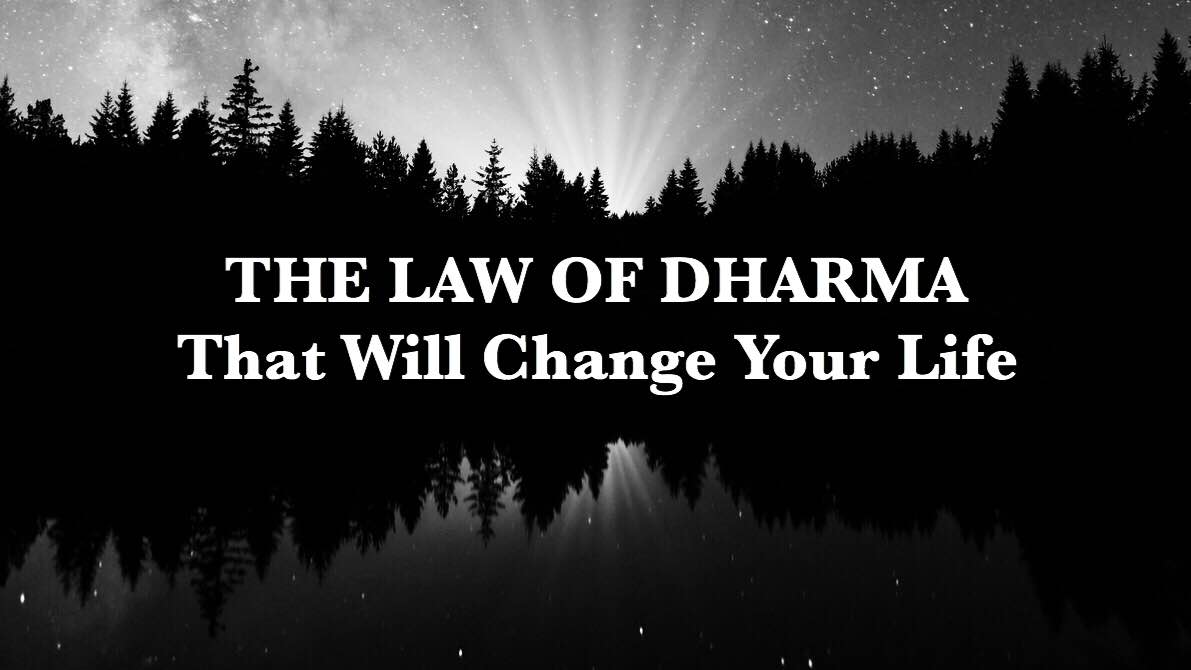We are all aware of what karma is. It has been used quite a lot in the Western world in the 21st Century. However, karma only tells part of the story. Dharma is the other!
We must differentiate between dharma and karma in order to understand dharma better and how it works. Here are the definitions of dharma and karma, as explained by Difference Between:
Karma: refers to the actions that one does in relation to one’s dharma. In a sense, dharma could be seen as one’s lifelong task, and karma, the steps that one has to take to complete the task.
Dharma: refers to one’s duty in this life. Your dharma varies according to your class, your family, and the time of your life.
So, dharma is purpose – what you set out to do in life. It is the end goal, whereas karma is what you do to get to the end goal (or what you do not do).

The Law of Dharma is the 7th and last law in Deepak Chopra’s Seven Spiritual Laws of Success. In the Law of Dharma, Deepak Chopra asks us to: “Seek your higher Self. Discover your unique talents. Ask yourself how you are best suited to serve humanity. Using your unique talents and serving others brings unlimited bliss and abundance.”
This law is the granddaddy of them all, for when we have understood fully and perfected it, all other laws are put in motion by the Universe and it feels like everything is falling into place. Chopra continues in Amber-Allen: “Every person is a never-ending project of the Universe.” The project belongs to the Universe but the path is yours. You decide the path to abundance and the Universe will make it happen.
The Law of Dharma That Will Change Your Life
Dharma and work
The easiest example of seeing dharma in action is through work and how people serve their clients and others that help to put money in your pocket. In the world of work, there is no such thing as a “bad job”, even for the most hated of professions, for example taxman, banker, lawyer, accountant, or dentist. These people serve in their job to put food on the table and keep the roof over their heads. They do not become bad people just because the job requires them to do unpopular things. Naturally, if one such person decides to do these unpopular things for their own gain (i.e. steal), this affects their karma in a negative way, which in turn affects how they reach their end goal – their dharma.
On the opposite side of the coin, if you have good motivation and good heart despite making many mistakes, you are practicing dharma, and automatically, you are engaging in virtuous activities. For the record, this is not a free pass for anyone who does not know how to do a job without the correct competency levels. In terms of difficulty within the professional realm, desiring work with no challenges is completely redundant. It is like asking for lemonade without water. The late Jim Rohn says it best when he suggests: “Don’t wish it were easier, wish you were better. Don’t wish for less problems, wish for more skills. Don’t wish for less challenge, wish for more wisdom.”
Related article: 12 Laws of Karma That Will Change Your Life

















